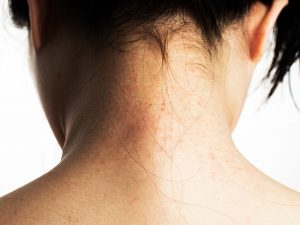What is Acupuncture?
You might only know acupuncture by images of people with a porcupine amount of needles in their backs, but Acupuncture is an ancient healing technique. Developed by the Chinese 3,000 years ago, acupuncture works by stimulating specific points or ‘acupoints’ on the body to treat chronic ailments. In the inaugural meeting on acupuncture by the World Health Organization in Manila in 1982, they recognized 361 of these acupoints were recognized. The final guidelines developed in 1987 added 48 points. Receiving acupuncture has been accepted in the Western world of medicine. Chinese medicine is based on the balance of energy or ‘qi’ and how it flows. Acupuncture therapy is the method used by the Chinese to release blocked in the body.
What can acupuncture do for you?
Acupuncture has been used as a preventative and treatment method. The practice is used most commonly as a complementary solution for:
• Back pain. • Neck pain. • Migraines. • Anxiety. • Depression. • Insomnia. • Osteoarthritis.
The use of acupuncture is not limited to these conditions. Multiple clinical studies using acupuncture to treat other illnesses have been done.
Does Insurance Cover Acupuncture?
Paying for integrative/complementary medicine can seriously damage your budget.
Ask the right questions and do your research before considering treatments such as acupuncture. A 2012 study by National Health Interview Survey (NHIS) showed $30.2 billion a year was spent by Americans on complementary health treatments. Make sure you ask your insurance provider if acupuncture is covered, what records you need to get from your practitioner, how many visits are covered, or if they are partially covered how much would you be out of pocket. The best tip is don’t assume: ask your insurance provider first.
Is Acupuncture Safe?
Acupuncture is a safe practice if done by a properly trained and licensed acupuncturist. Complications can occur as a result of improper insertion and unsterile needles. Unsafe practices by unlicensed practitioners could lead to serious problems such as:
• Infections. • Collapsed lungs. • Damage to the central nervous system.
Acupuncture is a complementary measure and does not replace seeing a medical professional.
What the Studies Say
The National Center for Complentary and Integrative Health, along with many other health organizations, has done many studies on the effects of acupuncture. The consensus among many was that acupuncture can ease chronic pain and osteoarthritis. There is not one blanket belief about the effectiveness of acupuncture. Steven Novella, MD, a clinical neurologist at Yale School of Medicine, described acupuncture as an “elaborate placebo” in a Science-Based Medicine article. This sentiment has been echoed by others.











